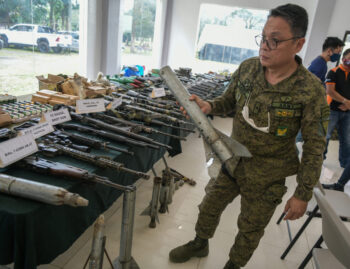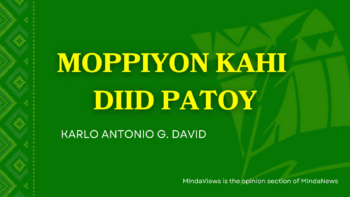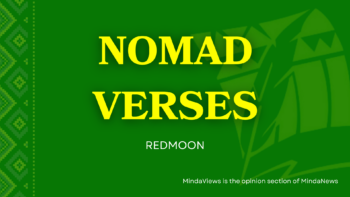The issuance of Executive Order No. 57 (series of 2024), renaming and reconstituting the National Coast Watch Council to the National Maritime Council, highlights the critical importance of our maritime security. Given our troubles in the West Philippine Sea, consolidating efforts to secure our seas and coastline seems only logical.
But bear in mind that the lynchpin of our national security strategy must inevitably be a self-reliant defense posture policy. The creation of the National Maritime Council is merely a small step towards this end.
To put it bluntly, EO No. 57 is not really going to make us a maritime powerhouse in our region. And the revamped National Maritime Council does not transform us into an aggressor nation either.
EO No. 57 merely signifies a more sensible approach to maritime security. The National Maritime Council can help President Ferdinand Marcos Jr. see both the horizon and the waves, so to speak. Quick access to the appropriate information and insight can help him make the right call at the right time.
Nonetheless, adherence to the constitutional prescription that “public office is a public trust” compels us to look beyond the necessity of EO No. 57. Civil society must view this executive issuance with critical eyes and raise the alarm when warranted.
For instance, as per Section 7, “The National Maritime Center is hereby authorized to accept donations, contributions, grants, bequests or gifts from domestic or foreign sources, for purposes relevant to their mandates and functions, subject to existing laws, rules and regulations.”
The National Maritime Center falls under “the leadership of the PCG” and is tasked to “implement and coordinate maritime security operations.” Pertinently, Presidential Assistant for Maritime Concerns, Sec. Andres Centino, said in a media interview that this provision on accepting donations is not unusual. In fact, the same proviso is found in the 2011 version of the EO No. 57.
But foreign donations in the context of national security will always warrant deeper scrutiny. It must never compromise our national interest. In any case, the provision has a self-limiting collatilla in that donations shall be “subject to existing laws, rules and regulations.”
Curiously, in a social media statement, Senator Imee Marcos warned that this provision “welcomes many a Trojan Horse of foreign interference.” The Trojan Horse analogy is misplaced because there is nothing deceptive about these foreign donations. And we have always accepted them with our eyes wide open.
Actually, the problem is that we may have become too reliant on foreign support for our national defense. Hence, it is still sensible to ask whether this foreign aid provision of EO No. 57 will lead to more foreign intrusion in our national affairs? The kind that we should not welcome at all.
The concept of “foreign interference” in the context of national security is generally understood as those nefarious activities carried out by or on behalf of another country or countries. Espionage is the most common example. But for us, “political warfare” is the most evident.
The aim of foreign interference is to sow discord amongst the populace and to advance the agenda of the foreign country or countries behind it. There is a malicious element in this instance. Hence, it is important not to mistake this with legitimate “foreign influence” operations.
All states, including us, seek to shape discourse and decision-making on policy-issues of other countries. This is essentially what international relations is all about. And often this will include providing assistance in some form. But there is no malicious intent here. Self-interest maybe a driving force, but never to the point of malevolence.
Foreign interference operations can occur anywhere and can involve any sector in our society. They can be done in secret or in plain sight. We see this in efforts to manipulate public discourse on a certain issue through the spread of disinformation. For instance, social media influencers, public figures, and even academics questioning the 2016 South China Sea Arbitral Tribunal Award.
We also see foreign interference manifest in particular policy decisions. For example, granting permission to a horde of Chinese nationals to essentially take over a residential area in Metro Manila. Another case is the acceptance of Chinese military officers to be members of the Philippine Coast Guard Auxiliary organization.
However, foreign interference is usually hard to detect. There are cases when it is not immediately palpable if illegal activities are involved. We have laws that criminalize treason and espionage. But acts that can use free speech and free assembly as a shield require a precarious balancing act between constitutional principles and national security.
Civil society, therefore, bears a huge responsibility in dealing with foreign interference. Presently, this comes in the form of the Beijing apologists in our midst. We must expose the politicians who parrot the CCP false narrative and make sure they never get elected again. We must shame the online saboteurs and make sure they never get a single “like” again.
We can balk at having to be reliant on foreign donations, but foreign interference is an existential problem for us. We should capitalize on the fact that, for the moment, the malign operators are not so good at hiding their treachery.
(MindaViews is the opinion section of MindaNews. Michael Henry Yusingco, LL.M is a law lecturer, policy analyst and constitutionalist.)







